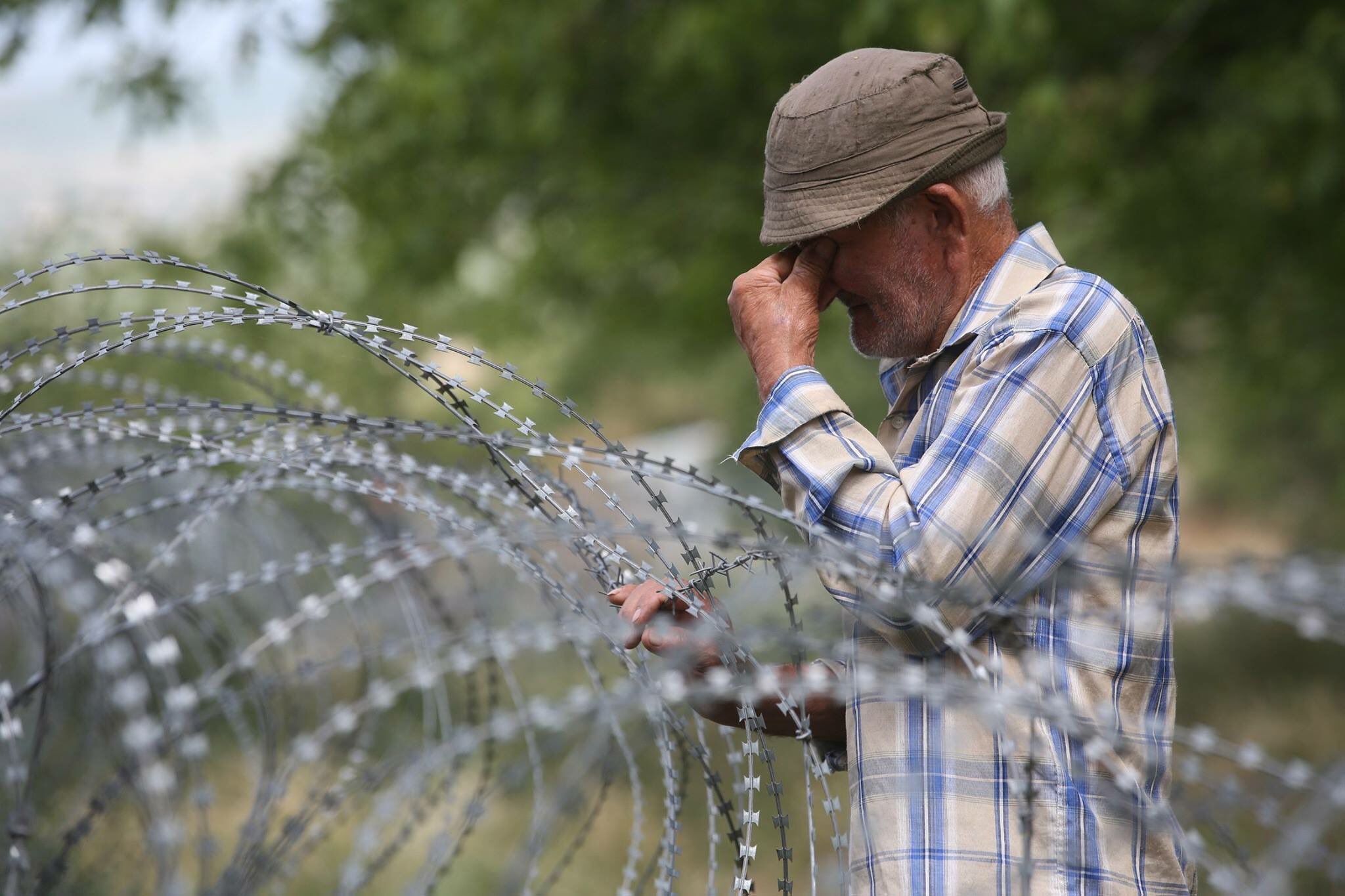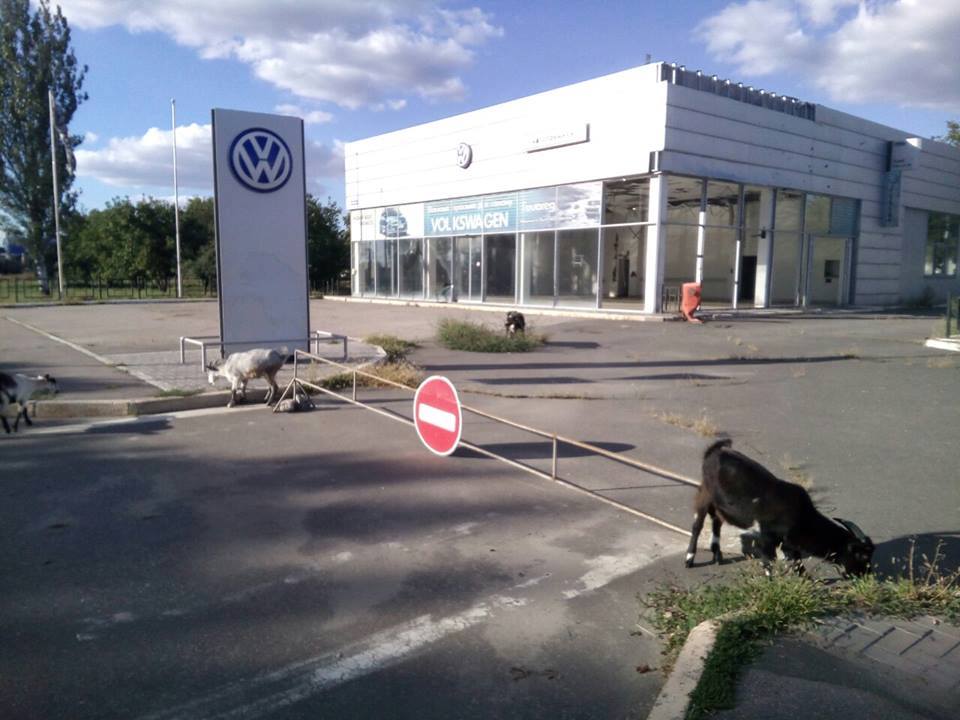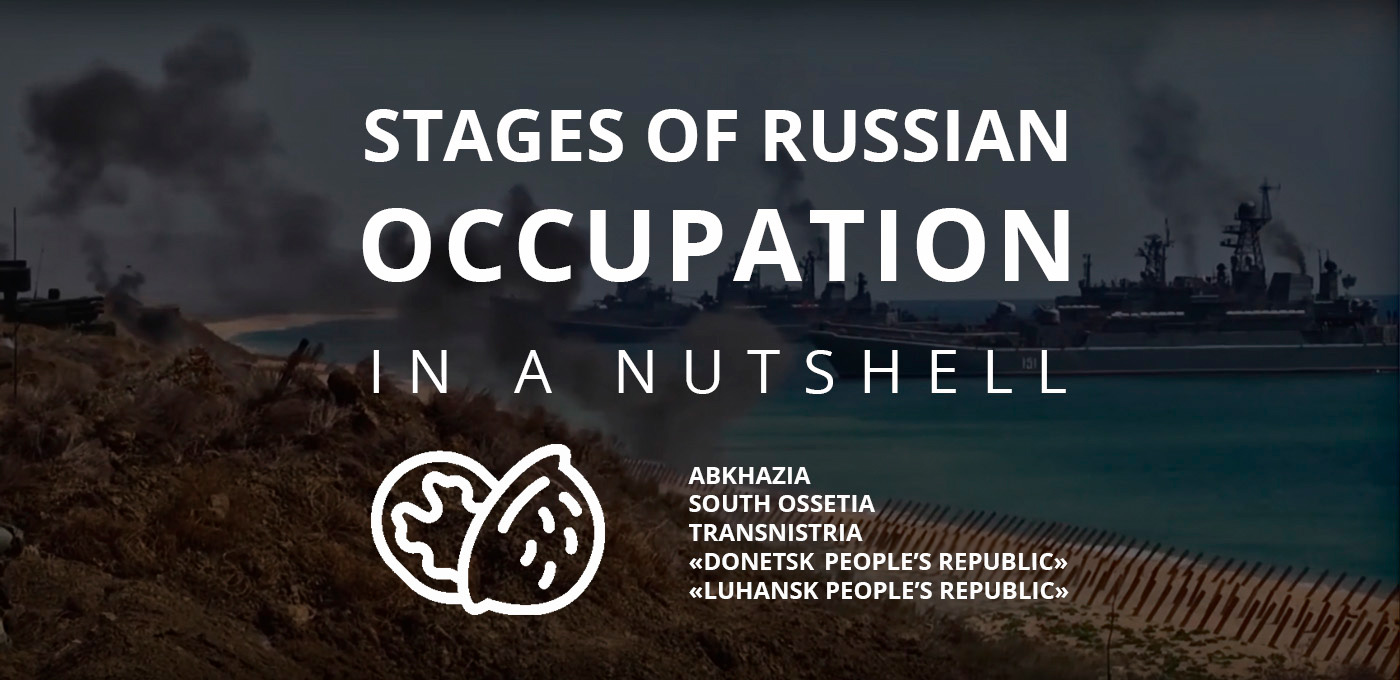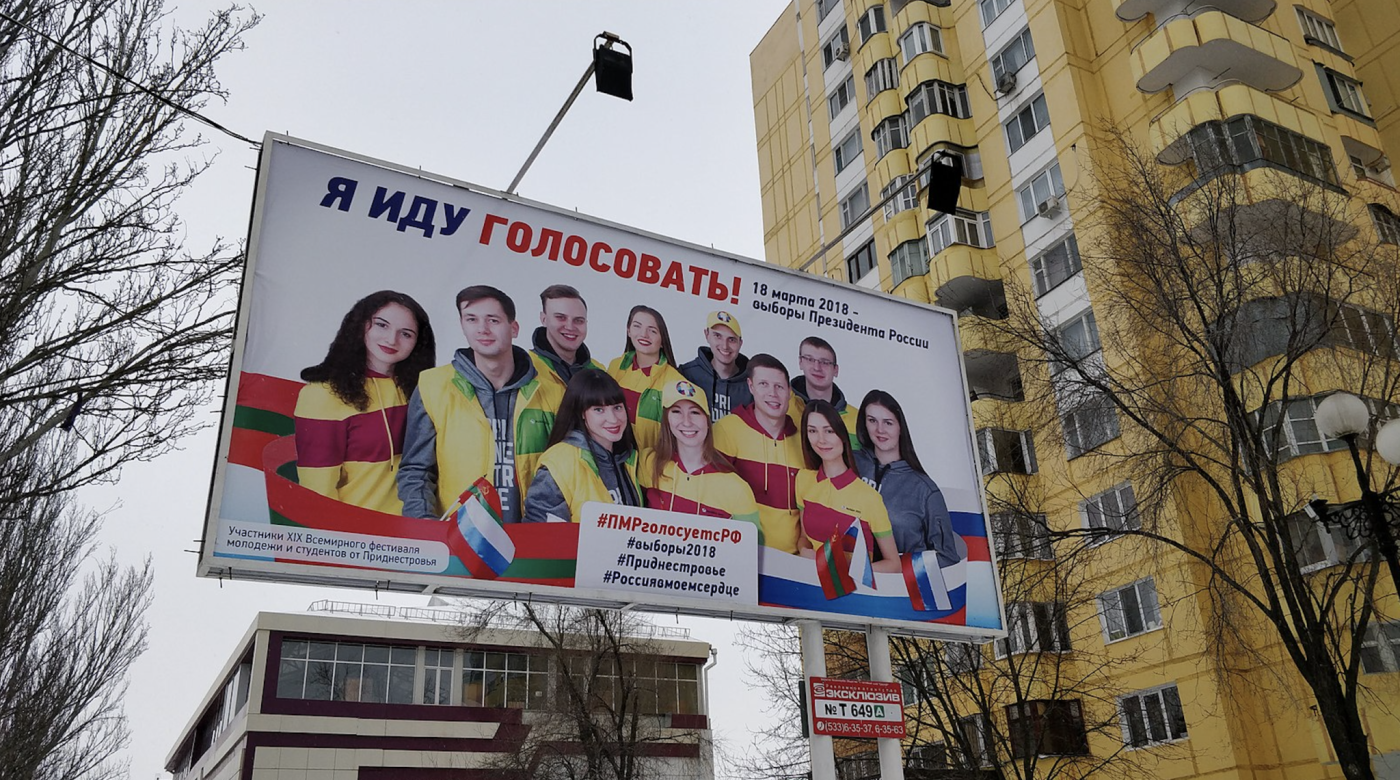Read also: Georgia’s lessons of peacebuilding now instructive for Ukrainians

Never-ending Geneva
These days ten years ago, the Russo-Georgian war began. While dabs in the contemporary Georgian history remind that Georgians were fighting with Russians starting from the beginning of the 1990s, the world noticed overt Russian aggression against Georgia only in August 2008.
Read also: Top 10 Russian lies about the Georgia war
Then, ten years ago, the war ended in several days. The military campaign resulted in the expansion of the territories under control of South Ossetia (officially called "the Tskhinvali Region" in Georgia) and Abkhazia. They boosted their separation from Georgia, and Russia officially recognized the independence of these self-proclaimed republics from the early 1990s.
Following these developments, official Tbilisi decided to follow an exceptionally peaceful, political-diplomatic course to return the occupied territories.
The peace negotiations had kicked off in Geneva on 15 October 2008. The co-chairs at the meetings were the UN, OSCE, and EU. Georgia, Russia, and the USA were the other participants, as well as representatives of Abkhazia and South Ossetia (Tskhinvali Region). From the Georgian viewpoint, Sukhumi and Tskhinvali were present in Geneva unofficially.
The parallel discussions are being held in two subgroups - one deals with regional security and stability matters, another addresses the issues of internally displaced persons and refugees.
It was envisioned that the Geneva negotiators would, first of all, facilitate the mutual non-use of military force and the procedure for refugees to return home. However, they haven't had any success in the ten long years.
This year, on 19-20 June, yet another round of the Geneva talks occurred, the 44th one. Again, one can call it now "traditionally," the parties were not able to agree who should sign the treaty about the mutual non-use of force, Russia keeps stating that it's not a side to the conflict and insists that Tbilisi should make arrangements exclusively with Sukhumi and Tskhinvali. [Russia has been saying the same regarding the Donbas conflict since 2014 - it demands direct talks of Ukraine with Russian-established Donetsk and Luhansk "people's republics" - ed.]
The only thing Russia agrees to is to act as a guarantor of the non-use of force, together with the USA and EU.
It's clear that this option is absolutely unacceptable for Georgia.
Read also: Kremlin hybrid war tactics in Georgia, 2008, and Ukraine, 2014-2015 | Infographic
Another argument revolves around the return of the refugees. Abkhazia, South Ossetia (Tskhinvali Region), and Russia refuse debating the issue in Geneva because... it's being discussed in the UN.
The latest meeting in Geneva has traditionally ignored the issue because a few days before, the UN General Assembly had adopted the Georgia-initiated resolution "Status of internally displaced persons and refugees from Abkhazia, Georgia, and the Tskhinvali region/South Ossetia, Georgia" for the 11th time since 2008. The resolution stipulates the right of all temporarily displaced persons and their offspring, disregarding their ethnicity, to return to their homes throughout the entire Georgian territory including Abkhazia and South Ossetia (Tskhinvali Region). And it mentions the necessity to develop a corresponding timeframe for the return. The UN also stresses that the forced change of the demographic situation is inadmissible in the regions separated from Georgia.
Russia unalterably opposes to considering this document by the UN General Assembly, because Russia insists that representatives of Sukhumi and Tskhinvali should participate in its accommodation. In the language of the Russian Foreign Ministry, it is "the ongoing attempts" to drag "the refugee issue to the forum of the UNGA that block discussing it in Geneva."
Can Geneva be viewed as an effective negotiation platform based on this case? The question is rhetorical.
Tbilisi strategies
Another Georgian tool to show its commitment to the return of its autonomies are the programs of peaceful reintegration which are being extensively adopted by the Georgian authorities in recent years with the support of the Western partners.
In early 2010, during the presidency of Mikheil Saakashvili, Georgia endorsed the "State Strategy on Occupied Territories: Engagement Through Cooperation." Its declared goal was to facilitate the restoration and enhancement of connections between the Georgian population on both sides of the demarcation lines which emerged due to the occupation, and ensuring that the Abkhazian and South-Ossetian populations enjoy rights exercised by every single Georgian citizen.
For this,
- Abkhazia and South Ossetia were to be involved in the Georgian international relationships;
- infrastructure was to be developed for free movement of the population and goods through the demarcation lines;
- Georgian healthcare was to become accessible to the people living in the occupied territories;
- the population of the regions in question was to have an opportunity to get an education in Georgia.
The West welcomed this Georgian plan of the peaceful reintegration of the territories, in particular, the EU and NATO. But Russia and the unrecognized republics took a stand against it. In the end, only the healthcare program was more or less effective, allowing to treat the residents of the occupied territories in Georgian hospitals using Georgian budget funds.
The education program failed due to the linguistic divide - Ossetes and Abkhazians don't speak and don't learn the Georgian language which is quite complicated, has its own alphabet and generally has nothing in common with the languages of these two other Caucasian peoples.
And the plan to improve the infrastructure for building connections between the inhabitants of the occupied territories and the rest of Georgia actually made matters worse. This year, with the active support of Russia, the number of the checkpoints at the administrative border of Abkhazia on the Inguri River was reduced to... only one.
Nevertheless, Tbilisi is not about to give up and the state's authorities are apparently devoted to the peaceful reintegration course initiated by their predecessors.
This spring, the government formed by the "Georgian Dream" party presented a new plan of the peaceful reintegration of the occupied territories. Titled "A Step towards Better Future," it basically continues the Strategy developed in the times of Saakashvili's presidency.
Among the new proposals is to facilitate additional opportunities for residents of the occupied territories to get an education; now Georgians have developed snap courses of the Georgian language for college enrollees.
Another novelty is the creation of a mechanism to improve access for the residents of uncontrolled territories to the benefits Georgian citizens gained due to country's rapprochement with the EU, namely the visa waiver and free trade agreement.
Besides its passports which grant visa-free travel with the EU, Georgia offers the residents of Abkhazia and South Ossetia special conditions for doing business in the Georgian territory and "via" the Georgian territory, i.e. using the export opportunities to sell one's products in the EU.
The "Step towards Better Future" program "allows us to share with our Abkhazian and Ossetian citizens the benefits, given to us by the very important international agreements, free trade and visa liberalization with Europe," Georgian Prime-Minister Mamuka Bakhtadze told in one of his recent interviews. His family members originate from a seaside town of Ochamchire in Abkhazia, where the official had spent most of his childhood.
Read also: From separatism to integration into another state: the way of Georgian territories
However, the updated program of peaceful reintegration has offered little room for optimism for most Georgian observers and experts, since, as before, Sukhumi and Tskhinvali are outspokenly hostile to initiatives of this kind.
Real integration
For its part, Russia for conducts an active integration of Abkhazia and South Ossetia.
Unlike the Georgian ones, the education programs of Russian universities have been around for several years now. And now, a medical insurance program emerged for the residents of these territories. As for economic cooperation, Russia directly subsidizes the budgets of the "republics" and is virtually the only investor in the regions.
Read also: Russia’s creeping annexation of Georgian territory
Taking all this into account, the Abkhazians and Ossetians obviously have no possibility and see no point in developing relations with the Georgian side. And if you recall that the vast majority of the Abkhazian and South-Ossetian residents hold Russian passports, then it becomes clear who is integrating the territories better.
Moreover, in contrast with Georgia, Russia implements not only humanitarian projects.
On 24 October 2014, the Russian Federation and the "Republic of Abkhazia" signed
an agreement on "Alliance and Strategic Partnership." The document outlines the guidelines for its implementation, in particular, a coordinated foreign policy, joint defence and security space, common social and economic space.
In October 2015, in a framework of the implementation of the Agreement on Alliance, they signed the "Agreement between the Russian Federation and the Republic of Abkhazia on a Joint Group of Armed Forces of the Russian Federation and the Republic of Abkhazia." The Joint Group is to provide an adequate response to an armed attack (aggression) and other military security threats against either party. The similar treaty was also signed with the "Republic of South Ossetia."
Read also: Policy shift shows Russia preparing to recognize its puppet republics in Donbas
The "president of South Ossetia" Leonid Tibilov said back then that signing the agreement with Russia was conditioned by the situation in Ukraine [meaning the war in its Donbas region - ed.], the expansion of NATO, and Georgian policies.
Sad predictions
Probably, it was the pursuance of the EU-endorsed line that allowed Georgia to sign the EU Association Agreement, achieve the free trade regime and visa waiver... Yet at the same time, the occupied autonomies don't just remain uncontrolled by the central government but are incessantly being integrated into Russia more and more.
I'd rather not voice sad predictions; dozens of thousands in Georgia and beyond strongly believe that Georgian governance will return to Sukhumi and Tskhinvali someday and they will be able to return home to South Ossetia and Abkhazia. There are about 200,000 refugees from the latter - the entire Georgian population of the autonomous republic.
For some people, such expectations have been their raison d'etre in the last 25 years. Though almost nobody believes in the quick return of the occupied territories after August 2008, some people still sincerely believe in a gradual implementation of the reintegration plan.
However, as of now, not a single fact allows conjuring a non-pessimistic forecast bringing hope for the Georgians.
Read also: Stages of Russian occupation in a nutshell
One last thing: a Georgian dream song about the return to Abkhazia, written more than 10 years ago:
There is peace in Georgia for now. The conflicts in Abkhazia and South Ossetia have been effectively frozen for many years. However, they remain unresolved since Russia retains full control of both regions.
The Georgian experience shows that any efforts of the reintegration of the occupied territories are useless while the aggressor state controls them.
Indeed, it would be strange to expect from Czechoslovakia the reintegration of the Sudeten after Hitler had annexed the region shortly before the Second World War, no matter what measures it would have taken. The same goes for the Croatian reintegration of the Serb-established Republic of Serbian Krajina, which existed until the Serbian support for Krajina eroded and Croatia regained control of the territory.
The only efficient Step One for the real reintegration of a still-occupied territory is to remove the aggressor.
Read more:
- Ten years after the Russian-Georgian war: the Kremlin’s unlearned lessons
- The Russian war against Georgia is far from over
- Despite rumors of resignation, Putin’s gray cardinal Surkov keeps job
- Another country where ‘local’ Nazis are a front for Russia – Georgia
- Georgia’s lessons of peacebuilding now instructive for Ukrainians
- Georgia slams “elections” in occupied Abkhazia as legitimizing Russian aggression
- Russia’s creeping annexation of Georgian territory
- Moscow laying groundwork for another invasion of Georgia
- Kremlin hybrid war tactics in Georgia, 2008, and Ukraine, 2014-2015 | Infographic
- Georgia ’08: Putin’s first dabble in hybrid war gone wrong
- How the Russo-Georgian War of 2008 Started
- Stages of Russian occupation in a nutshell
- Russian involvement in Ukraine’s Donbas “republics”: 10 things you should know





